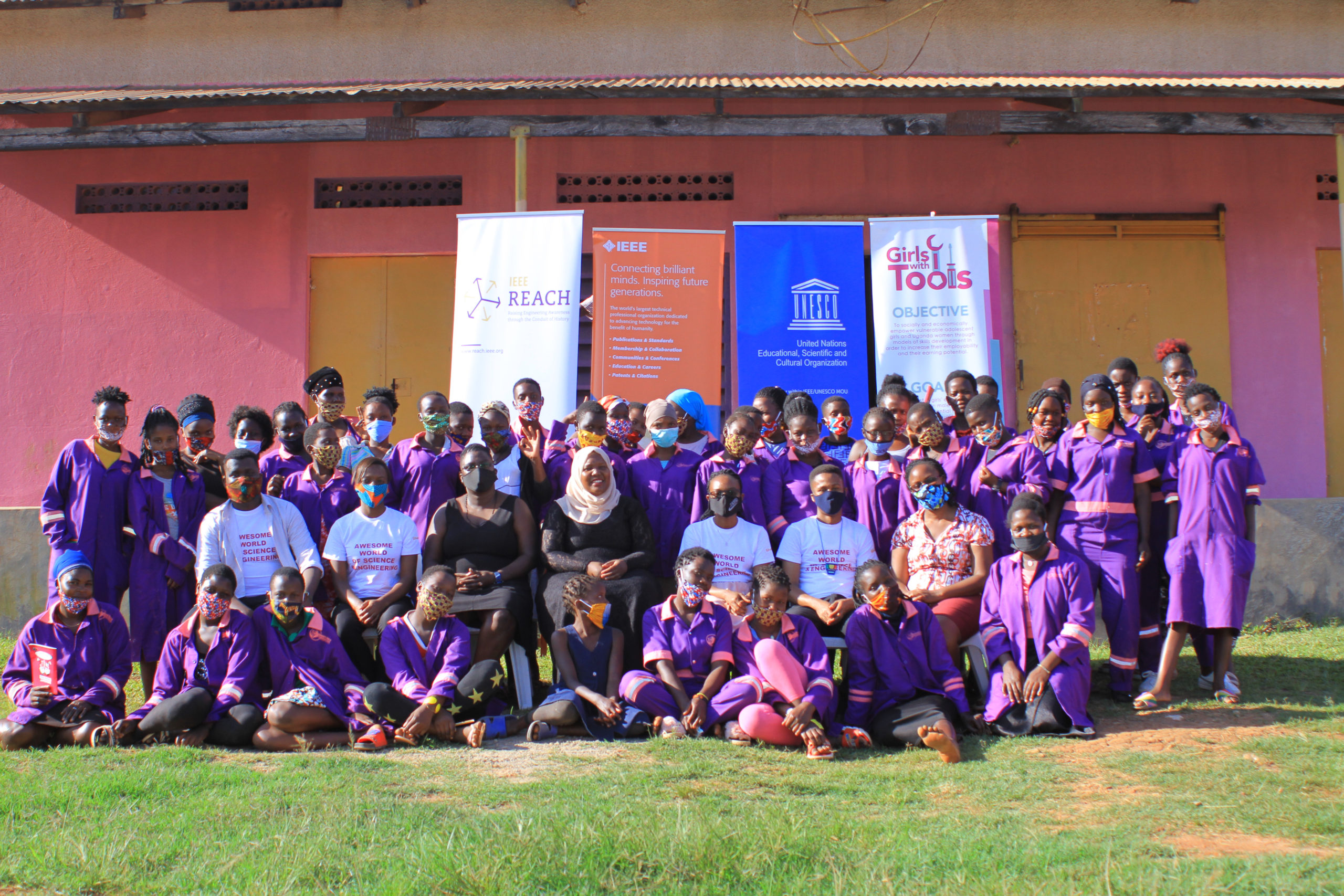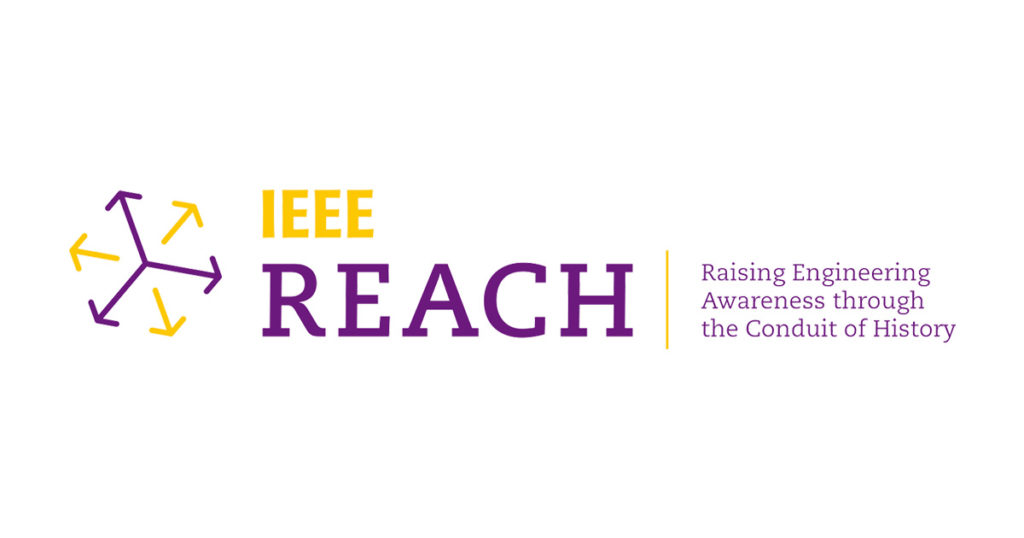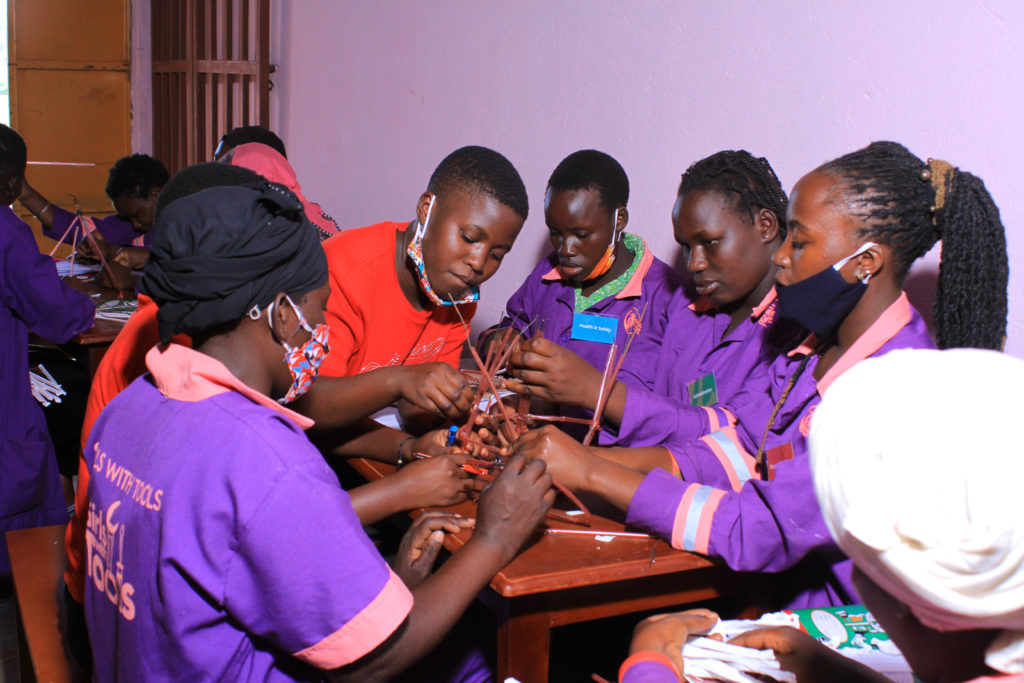by Kelly McKenna, IEEE REACH Program Manager & Maryanne Karamagi, CEO of Silver Bolt
Aug. 31, 2021

IEEE REACH is an interdisciplinary, open education resource (OER) program of the IEEE History Center that provides free pre-university resources with a focus on the history of technology. The program has created a new co-branding partnership with UNESCO that is inspiring students, engaging teachers, and garnering significant stakeholder interest.
One of the 21st-century skills students need to be responsible citizens is technological literacy. Every aspect of the world we live in today is impacted by technology. “In order to be a technologically literate citizen, a person should understand what technology is, how it works, how it shapes society and in turn how society shapes it.” (ITEEA, 2000/2002) Yet many students fall below technological literacy proficiency levels.
While there are numerous STEM resource programs available that focus on what technology is and how it works, there are few that focus on the social and humanistic context of technology. One of the best ways to teach these technological literacy skills is through the lens of history! History provides an opportunity to increase cultural awareness and deepens an understanding of the world in which we live. History also provides a sense of identity. IEEE REACH (reach.ieee.org) is leading the way in this effort. It bridges the gap between Humanities and STEM by exploring the history of technology, its impact on society, and how society has influenced the evolution of technology. The goal of the REACH program is to improve all student’s technological and engineering literacy skills as necessary for college, career, and civics – and to be responsible and informed citizens in today’s tech world. The REACH/UNESCO pilot program has also shown that REACH may also provide a new STEM education pathway, by engaging students through historical narratives.

About IEEE REACH Lesson Plans:
The program provides full lesson plans that are researched and vetted by Ph.D. Historians. The plans include formative and summative performance tasks, excerpted documents, and civic actions, which make the material relevant to students’ lives today. They are designed in an inquiry format that encompasses engaging students through compelling questions and inquiry, using and evaluating evidence to answer questions and communicate answers, and participating in civic actions. Inquiries are supported by primary sources, short engaging student videos, and hands-on activities.
All the program’s resources are available via the REACH website and meet both the United States and International education standards. These standards include, in the U.S., the National Council for the Social Studies (NCSS) C3 (College, Career, and Civics) standards and the Social Studies Common Core standards, in addition to the Next Generation Science Standards. They also meet the International Technology and Engineering Educators Associations’ (ITEEA) Standards for Technology and Engineering Literacy or STEL.
As part of an IEEE Memorandum of Understanding with UNESCO, with assistance from IEEE’s Corporate Development and support from the IEEE Africa Council and the Uganda Section, the IEEE REACH program has partnered with UNESCO on a co-branded pilot program that delivered REACH resources to students (predominantly girls) in Uganda, Africa. Silver Bolt, an Uganda non-profit education organization, adapted the resources to meet Uganda’s National Curriculum Development Centre’s (NCDC) standards based on a new curriculum modeled around 21st Century skills. The pilot was carried out at the Smart Girls Foundation, a non-profit, girl-centered development organization, and by way of a traveling classroom trailer that reached under-served communities. The program was delivered to both learners and teachers and a deliberate effort was made to deliver the REACH resources to the girls and women in the Wakiso district, who had either not received or had attained lower levels of formal education.

As recommended by Uganda’s NCDC, all pedagogy was aimed at using the history of science, engineering, and innovation to spark creativity, boost critical thinking, collaboration, teamwork, and communication. To meet the learner’s needs, the team contextualized and delivered the REACH resources based on the learners’ language, education levels, and the communities they lived and studied in.
The nature of the REACH resources allowed for high levels of contextualization and relevance by utilizing the inquiry design methodology of the program and applying the historical facts, and through implementing the performance tasks, and locally developed assessments. A “training of trainers” also took place, comprised of pre-service and in-service instructors, teachers and parents, and emphasized points of interest and application along with both formal and informal curricula.
The diverse application of REACH enabled the delivery of the resources to approximately 1,000 teachers and students with all learning engagements optional. There was a sustained attendance of 76%. 52% of the learners were above 18 years of age and 48% were aged 12 – 18, with over 75% being female learners. The implementation of the program achieved an average 16.2-point change in knowledge with over 72% finding the REACH topics relevant. In addition, 76% were aware of the next steps they would take following the outreach.
Following the success of the REACH/UNESCO pilot, IEEE and Silver Bolt were invited to present at a UNESCO STEM mentorship workshop, supported by the Uganda National Commission for UNESCO and IEEE, and attended by educators and key stakeholders from both UNESCO and the Uganda Ministry of Education. The goal of the workshop was to equip Science teachers in the region with tools to realize improvements in participation by women and girls in STEM education. The teachers participated in IEEE REACH activities just as a student would! They walked away inspired and with a new toolkit and STEM pathway for girls. As a result, the Uganda Ministry of Education is considering an expansion of the program to support the new national curriculum and UNESCO is exploring exporting it elsewhere.
